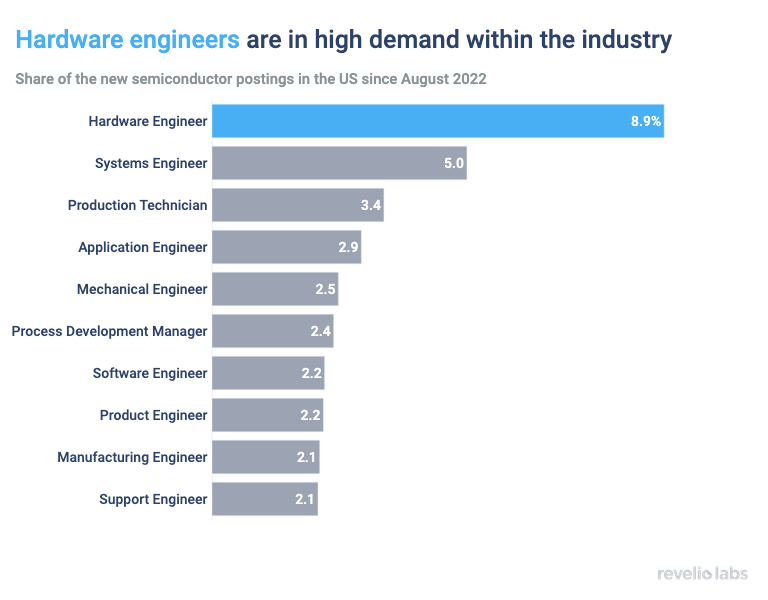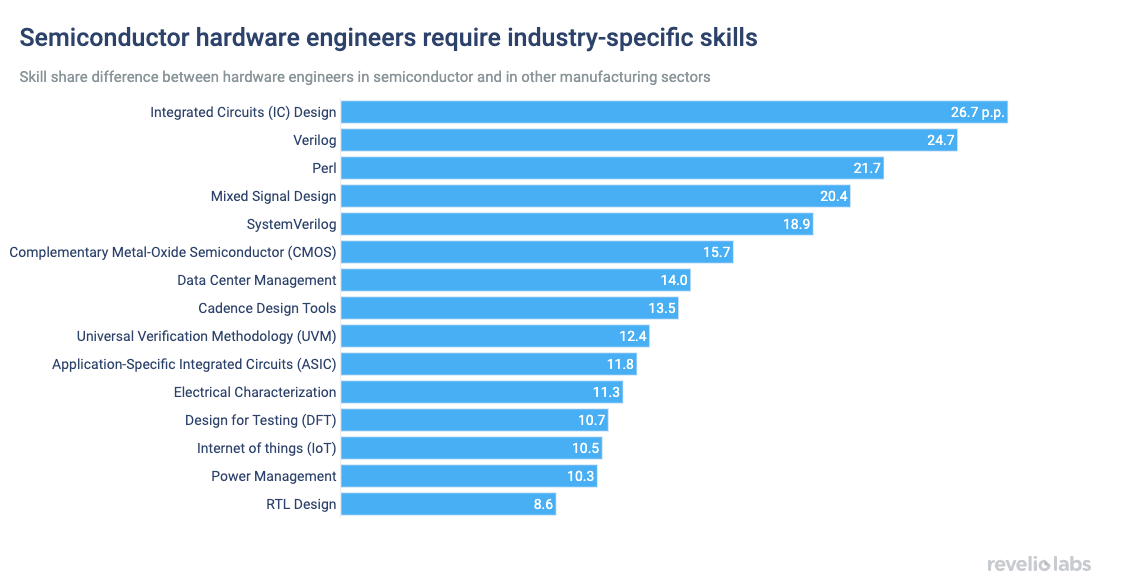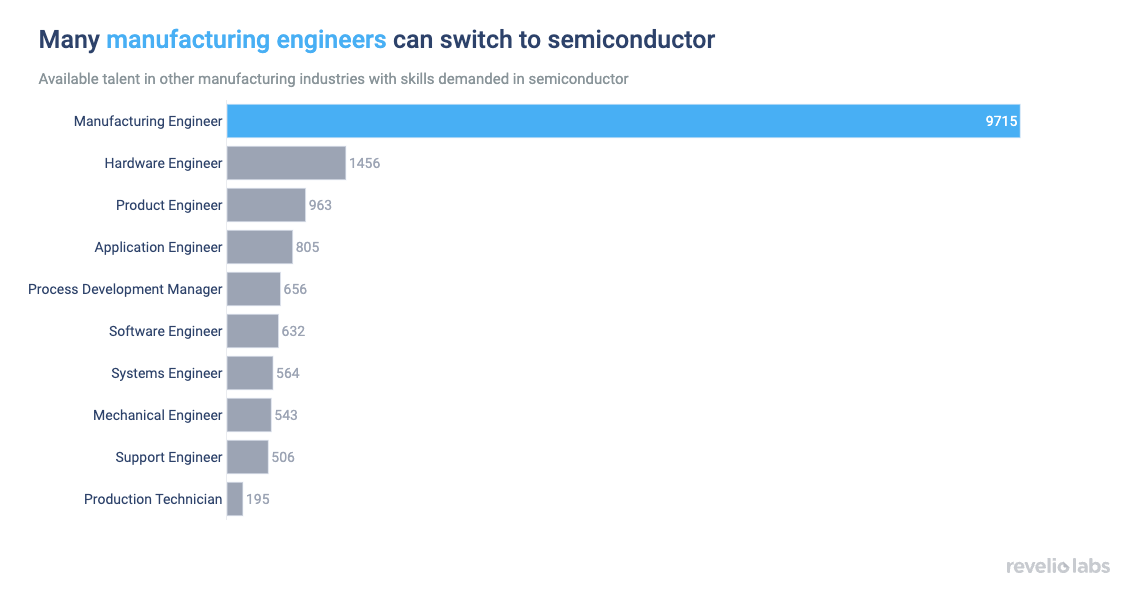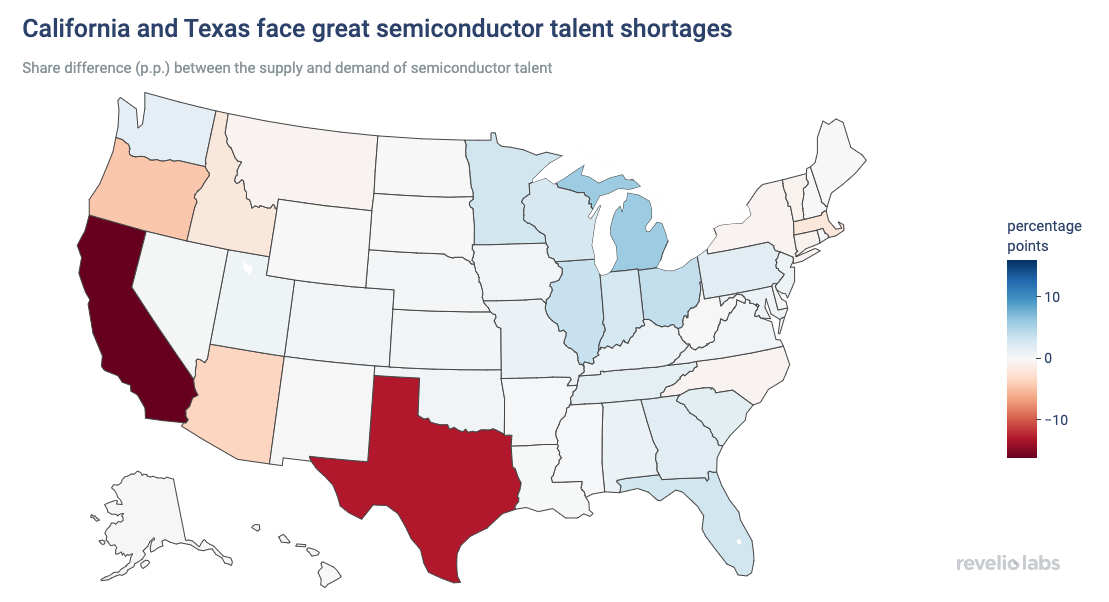Has the Chips Act Been Dealt a Bad Hand?
The CHIPS act has to overcome the semiconductor talent shortage

Engineering roles are in significant demand within the semiconductor industry, with hardware engineers being particularly sought after.
Manufacturing engineers in other manufacturing sectors possess many transferable skills demanded by the semiconductor industry. However, for hardware engineering roles, the pool of potential talent is limited, likely because the roles require industry-specific expertise.
California and Texas are grappling with more significant talent shortages compared to other states.
In a previous newsletter, we delved into the pressing issue of talent shortages within the semiconductor industry. Locating qualified individuals who can effectively operate and manage semiconductor manufacturing facilities has been proving to be difficult. Positions that require industry knowledge, including technicians and engineers, are experiencing significantly prolonged recruitment periods compared to the national average in the United States. In this week's newsletter, Revelio Labs looks into the talent landscape in detail, highlighting the roles in highest demand and the essential skills they require.


What specific skills are necessary for hardware engineers in the semiconductor industry in particular? Using our skills taxonomy, we compare the skills listed in new hardware engineering job postings between the semiconductor industry and other manufacturing industries since August 2022. Job postings for semiconductor hardware engineers place a greater emphasis on industry specific skills. Their skill requirements include Integrated Circuit (IC) design, expertise in digital and analog electronic circuits, and proficiency in programming languages like Verilog, Perl, and SystemVerilog for hardware description and testing purposes. It's important to note that skills like data center management and power management are also valuable as they enable the design of energy-efficient, scalable, reliable, and secure semiconductor facilities.


Sign up for our newsletter
Our weekly data driven newsletter provides in-depth analysis of workforce trends and news, delivered straight to your inbox!
Who possesses the skills required for these highly sought-after positions in the semiconductor industry? By using our skills taxonomy to compare the skills specified in the semiconductor job postings for each high-demand position with the skills outlined in the profiles of workers currently employed in the same role in other manufacturing industries, we can identify individuals with the most overlapping skill sets for each position, highlighting potential talent for the semiconductor industry. Manufacturing engineers in other manufacturing sectors appear to possess a greater number of transferable skills that are in demand for the same position within the semiconductor industry. However, when it comes to positions like hardware engineers, the available pool of potential talent is relatively limited.


Potential semiconductor talent may not be concentrated in the regions where they are most needed. Using workforce intelligence data and analyzing the difference between each state's share of potential talent supply and share of new job postings for these sought-after roles, Revelio Labs finds that California and Texas are grappling with more significant talent shortages compared to other states. Although attracting experienced hires from other manufacturing sectors may pose challenges, both states have well-established and extensive higher education systems. As a result, these states could turn to establishing a strong talent pipeline by creating specialized majors and programs that can effectively attract and cultivate young talent within the semiconductor industry.




